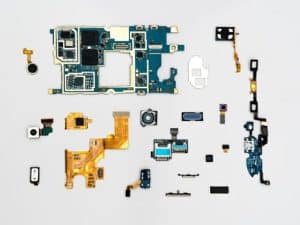Empowering Students Through Learner Agency
The education landscape is rapidly evolving, and with it comes the need for innovative approaches to learning. One such approach is learner agency, which puts the student at the center of their learning journey. Empowering students through learner agency has become more crucial than ever in today’s fast-paced, interconnected world. As teachers, administrators, and policymakers, it is our responsibility to provide students with the tools they need to take ownership of their learning and develop the necessary skills to thrive in the 21st century. In this article, we will explore the concept of learner agency and its impact on empowering students to become lifelong learners.
The Rise of Learner Agency
The traditional education system has long been viewed as a one-way street, with teachers imparting knowledge to students who serve as passive recipients. However, with the widespread availability of information and the changing job market, this approach has become outdated. Students now have access to abundant resources and can learn at their own pace, making them active agents in their education. This shift towards learner agency has been fueled by the increasing use of technology and the internet, which has made it possible for students to engage in self-directed learning and take control of their learning process.
What is Learner Agency?
Learner agency can be defined as the capacity for students to make intentional, autonomous decisions about their learning. It goes beyond simply engaging students in the learning process; it empowers them to take ownership of their learning and shape their educational experience. When students have control over their learning, they develop a deeper understanding and lasting knowledge that extends beyond the traditional classroom setting. It allows students to take advantage of their strengths, interests, and learning styles, which, in turn, leads to greater motivation and engagement.
The Role of Teachers in Fostering Learner Agency
Teachers play a vital role in promoting learner agency in the classroom. They are responsible for creating an environment that encourages students to be active participants in their learning. This involves allowing students to have a say in what and how they learn, providing opportunities for students to pursue their interests, and supporting them in setting and achieving their learning goals. Teachers also serve as guides and facilitators, rather than the sole source of knowledge. They must be open to student input and ideas, and be willing to adapt their teaching methods to meet the needs of their students.
Developing Self-Directed Learners
Empowering students through learner agency also involves developing self-directed learners. Self-directed learners are motivated, lifelong learners who take responsibility for their learning and are able to set and achieve goals independently. This type of learning fosters critical thinking, problem-solving, and decision-making skills, which are essential for success in today’s world. When students have the opportunity to develop these skills, they are better equipped to face challenges and adapt to new situations, both inside and outside of the classroom.
The Benefits of Learner Agency
There are numerous benefits to empowering students through learner agency. This approach not only increases student engagement and motivation but also leads to deeper learning. It allows students to discover their strengths and interests, which can lead to career exploration and preparation. Learner agency also promotes a sense of ownership and responsibility for one’s own learning, which is beneficial for students throughout their educational journey and beyond.
Impact on Student Achievement
Learner agency has been linked to improved student achievement. When students are actively engaged in their learning, they are more likely to retain information, apply knowledge to new situations, and make connections between different subjects. Additionally, when students are intrinsically motivated to learn, they are more likely to persist and overcome challenges, resulting in higher levels of achievement.
Preparation for the Future
Empowering students through learner agency also prepares them for the future. In today’s constantly evolving world, students need to be adaptable, resourceful, and self-directed. Learner agency develops these skills and helps students become lifelong learners, which is crucial for success in the 21st century job market.
Conclusion
In conclusion, empowering students through learner agency is essential for preparing them for the demands of the 21st century. It gives students a voice in their education and allows them to take ownership of their learning process. As educators, it is our responsibility to foster learner agency in our classrooms and equip students with the skills they need to succeed both academically and in their future endeavors. By prioritizing learner agency, we can help students become lifelong learners and active participants in their own education.



